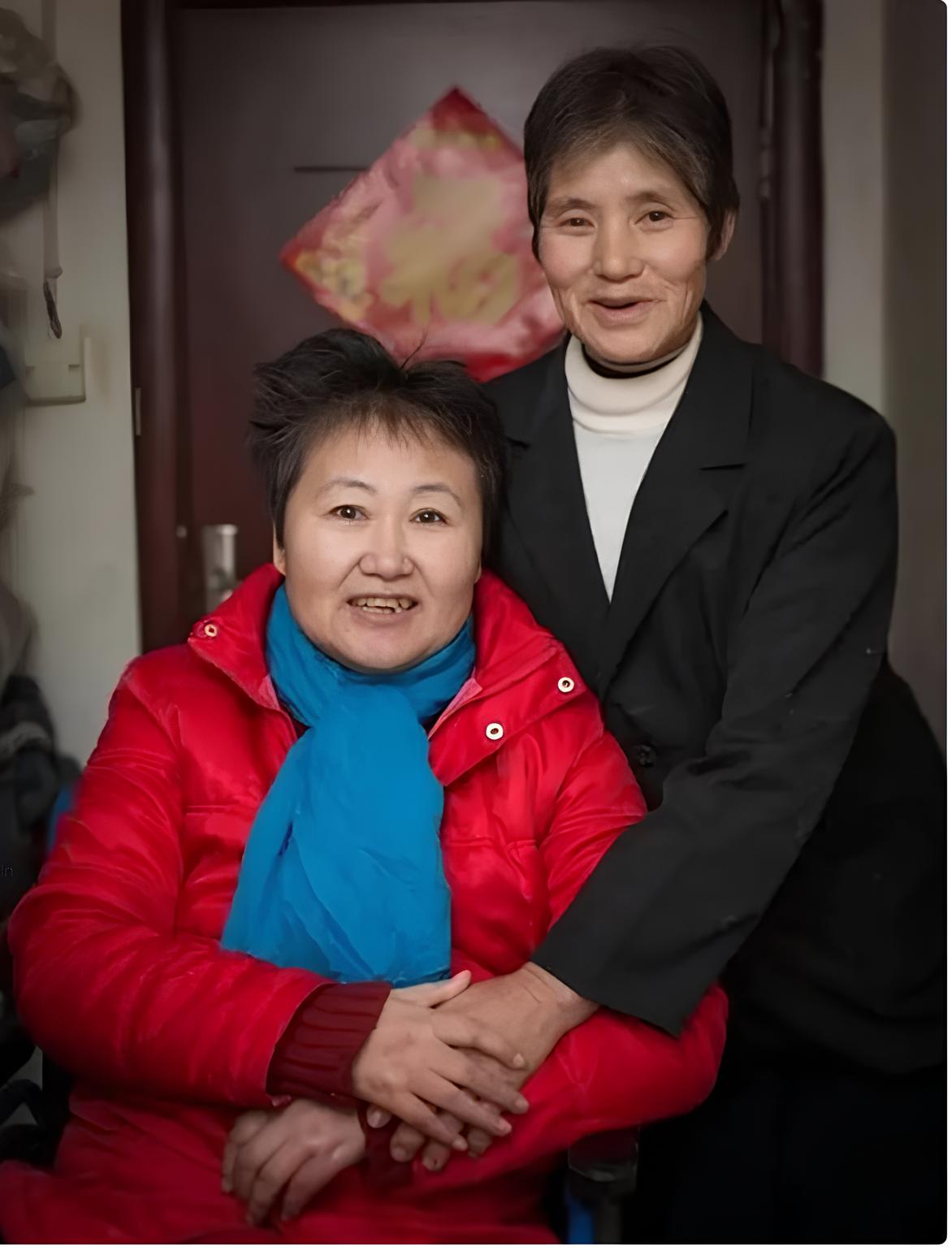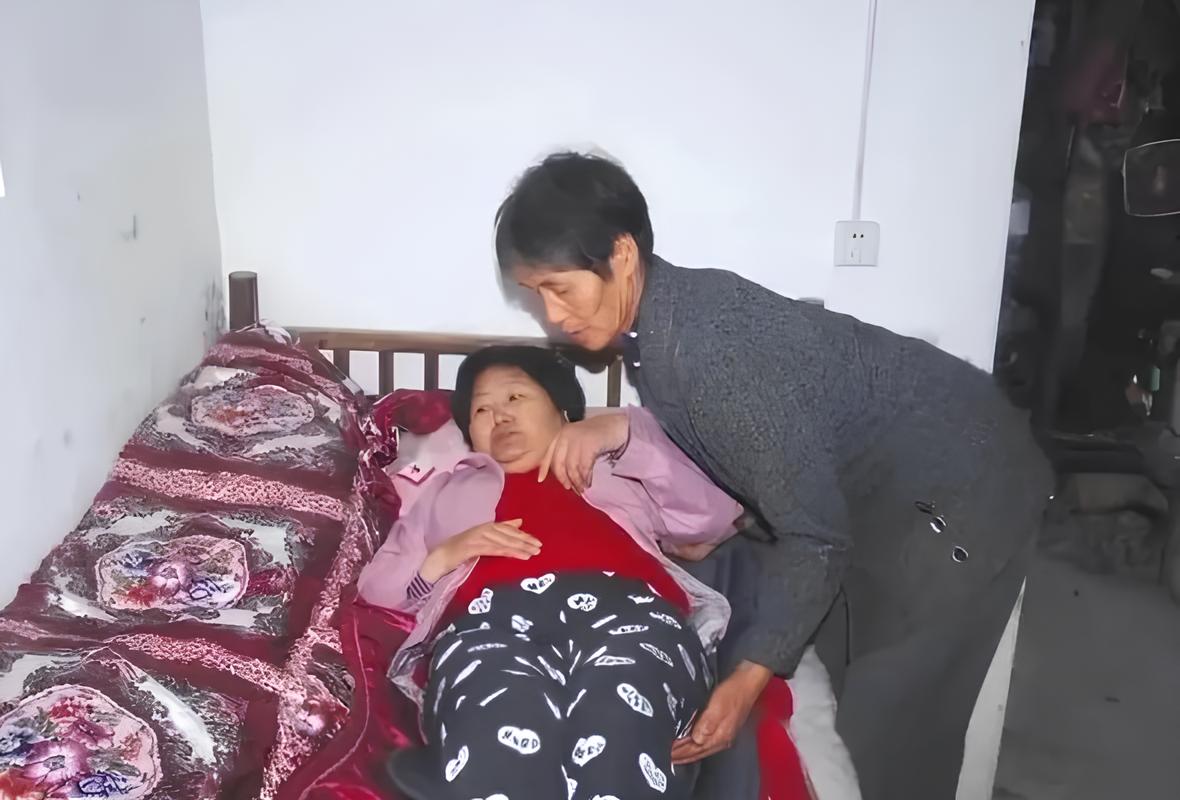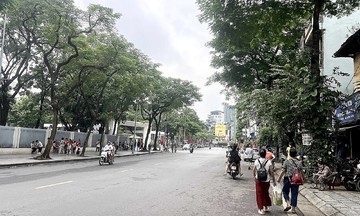Xiang Juxiang, a nurse at Xianju County Hospital in Zhejiang province, was assigned to care for the 20-year-old Song. Xiang couldn't believe that parents could abandon their child. Although Song was unresponsive, Xiang diligently changed her diapers, turned her regularly, bathed her, and gave her daily massages. "I thought that if I took good care of her, her parents would come back," she said.
But the wait lasted over 10 years.
After three months in a coma, Song awoke. She was paralyzed from the waist down, with impaired speech and almost complete memory loss. Having grown attached to Song during her care, Xiang couldn't bear to leave her abandoned again.
 |
Song Yuwei (left) and Xiang Juxiang (right). Photo: QQ |
Song Yuwei (left) and Xiang Juxiang (right). Photo: QQ
In 2007, Xiang's husband suffered a stroke, leaving him paralyzed. Unable to abandon either of them, Xiang brought Song home to live with her and her husband, adding two patients to her already struggling household.
Lacking money, Xiang used cloth scraps for diapers and often had to wash blankets by hand in the river, enduring the icy water in winter. Once, she slipped on the ice, the pain preventing her from standing. Yet, she didn't dare go to the hospital for fear of the cost.
Hearing that acupuncture could help with paralysis, Xiang asked her father, a local doctor of traditional Chinese medicine, to teach her. Illiterate with poor eyesight, she practiced by inserting needles into her own hands, locating acupuncture points, testing depths, and enduring the resulting bruises. "I wouldn't dare use the needles on her without first trying it on myself," she said.
After months of persistent study and self-inflicted pain, Xiang began treating Song. "As long as I'm alive, she'll have a mother," she said.
Each morning, Xiang rose at dawn to tend her small vegetable garden, both for food and to supplement her income for medicine and bandages. At one point, facing financial exhaustion, she placed Song in an orphanage. But on her first visit, when Song embraced her, crying, "Mom!", Xiang wept and brought her back home.
In 2009, Xiang formally adopted Song at the Civil Affairs Bureau, becoming her legal mother.
Thanks to her adoptive mother's devoted care, Song, once diagnosed as being in a vegetative state, gradually learned to speak, read, eat independently, and slowly walk again. With most of her post-accident memories gone, Song only remembered being a teacher and her snowy hometown in Heilongjiang. But she cherished memories of her mother's cooking and the old books her mother collected for her.
 |
Xiang caring for her adopted daughter before she was placed in social care. Photo: QQ |
Xiang caring for her adopted daughter before she was placed in social care. Photo: QQ
"When she says, 'Mom, I love you forever,' all my hardships seem worthwhile," Xiang said, gently stroking her daughter's cheek.
But the hardships didn't end. In 2016, Xiang's husband passed away. In 2018, her youngest son developed a neurological illness, and she was diagnosed with lung disease. Exhausted by decades of hard work and emotional strain, in early 2021, she agreed to place Song in a social care center, arranged by the authorities.
But whenever her pain subsides, Xiang cycles to visit Song, bringing food, clothes, and sharing walks around the grounds, watching the grass grow, the birds fly, and the quiet sunsets over the hills.












